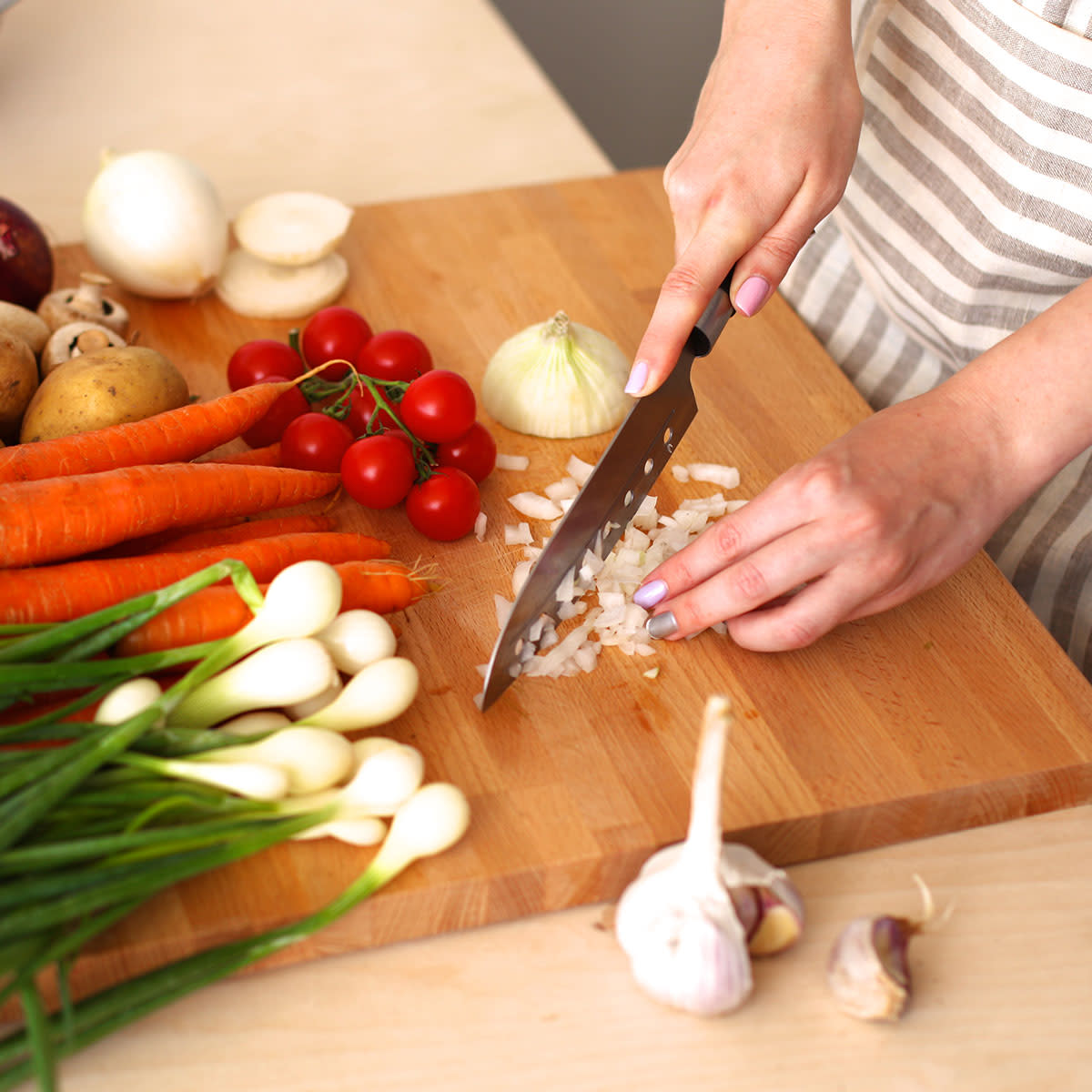Want A Flatter Belly? Dietitians Say You Should Cut These Veggies Out ASAP

Belly fat, often the target of many individuals seeking a healthier lifestyle, can be influenced by a variety of factors, including diet. While vegetables are typically considered a staple in any balanced diet, it’s surprising to learn that even these seemingly healthy foods can potentially contribute to belly fat in some ways. In this discussion, we’ll explore the connection between vegetables and belly fat, shedding light on some surprising contenders that might not be as innocuous as they appear when it comes to your waistline.
We spoke with Jesse Feder, RDN, CPT, to learn about some surprising facts about the link between veggies and belly fat. To be clear, Feder states that “vegetables are naturally low in calories and will not directly lead to belly fat. However, some vegetables are known to cause gas, bloating, and irritate the gut which can affect our digestion and metabolism.” Additionally, he also points out that “any vegetables that are cooked in too much butter or oil, is fried, or topped with high fat toppings (butter, cheese, fatty sauces/dressings), can lead to belly fat.”

Vegetables And Belly Fat
Certain vegetables are notorious for their potential to induce gas, bloating, and irritation in the digestive system, which can subsequently impact our digestion and metabolism. Among these culprits are broccoli, kale, cabbage, asparagus, Brussels sprouts, and cauliflower, to name just a few. These vegetables are certainly healthy and contain numerous health benefits, but can be irritating for those with sensitive digestion.
"These veggies are typically high in insoluble fiber and certain carbohydrates that bacteria tend to eat and leads to fermentation and then gas/bloating. This can irritate the gut and potentially cause inflammation and affect your metabolism when eaten in large quantities," Feder states.
Nonetheless, he adds that the most concerning offenders are vegetables drenched in butter, oil, or laden with fatty toppings and sauces. These additions bring along a substantial load of calories and inflammatory fats, which, when consumed in excess, have the potential to contribute to the accumulation of belly fat.
Next time you crave some deep-fried eggplants or battered cauliflower, think twice as these oil-drenched veggies can contribute to abdominal fat through its fat content.

The Bottom Line
Feder concludes that vegetables that have minimal amounts of these challenging-to-digest carbohydrates typically sit more comfortably in our digestive system. Examples of such vegetables include carrots, cucumbers, bell peppers, green beans, eggplant, and zucchini. Furthermore, the calorie content can be significantly reduced by steaming your vegetables, as this method eliminates the need for cooking them in oils or fats.
Overall, there isn't a particular vegetable that must be entirely excluded to avoid the accumulation of belly fat. Rather, maintaining a well-rounded diet with an emphasis on portion management, cooking methods, and incorporating a diverse range of vegetables is crucial for promoting overall health.

